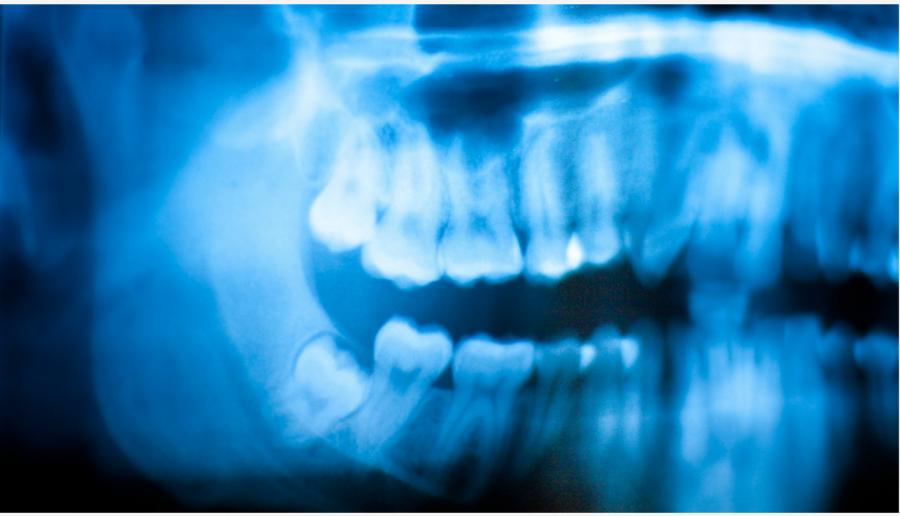The Realities of Getting Wisdom Teeth Pulled
“Wisdom Teeth” by Ricky Romero is licensed under CC BY-NC 2.0
Getting wisdom teeth pulled, can cause relief from pain but is a painful process.
April 14, 2021
Getting your wisdom teeth pulled is a horror that many people have the unfortunate luck of experiencing. According to Jr. Smiles, 5 million people get their wisdom teeth pulled each year. The majority of those people are between the ages of 17-21. If you’re like me, you got the bad genes in the family and were cursed with a small mouth that can’t fit those extra few teeth.
Having wisdom teeth pulled is technically a minor oral surgery. This means you get to have excruciating pain until you get them pulled, a drugged up and painful couple of days, from the general anesthesia or laughing gas, and then weeks of care afterwards.
Wisdom teeth are another set of molars that come in just like 6 or 12 year old molars. Typically, adolescents then find out whether they can keep their teeth. If not, the oral surgeon cuts open your gum, removes the tooth, then stitches it up. Sounds simple right?
Personally, having my wisdom teeth trying to come in caused a ton of pain. My gums were constantly aching. I’m talking months of this agony before I could get them pulled. The teeth were even causing me jaw problems. I couldn’t open my jaw all the way and it would lock up a lot.
After the surgery, the pain intensified. I had to keep gauze in my mouth the rest of the day to catch the blood. I ended up only having three wisdom teeth, so one side of my mouth hurt significantly less than the other. I was prescribed a medicated mouthwash, pain medicine, and antibiotics. I alternated between taking Advil and the prescribed opioids. After a few days, I only experienced slight discomfort. The pain medicine did make me super out of it and super giggly.
A big fear in regards to getting your wisdom teeth pulled seems to be spilling secrets or saying regrettable things when you’re coming off the anesthesia. I’ve seen the videos. I know that happens to a lot of people. I just promptly started sobbing and then asking my mom why I was crying and then crying more when she said she didn’t know. Nothing regrettable said. Maybe that was just my karma for having unbelievable jaw pain for months previously.
Jasmine Gordon got hers pulled in December of 2020. “Right after I woke up, I tried to get up and walk, which wasn’t a good idea because my balance was off,” Gordon said. Agreed. The struggle was real. I thought I could handle walking by myself however, my my near faceplant with the pavement suggested otherwise.
Aftercare is probably the most important and most non sensationalized part. “A lot of the aftercare consisted of sleeping upright for about two weeks and surviving on jello and a LOT of applesauce. I always kept warm and cold compresses to deal with the pain, and it often kept me up at night. There’s a big possibility of of dry socket, and to help that I had to do a salt water rinse twice a day and I couldn’t brush my teeth,” said Gordon.
For the first day or two after the surgery, you want to keep gauze and pressure on the wounds to stop the bleeding. Taking the antibiotics will prevent infection and the prescribed mouthwash also helps with that. It’s important to do salt water washes in order to help with pain and get anything out of the holes. Dry socket can occur if you suck too hard while still healing. So, no straws for at least two weeks. Dry socket is when the blood clot in the wound dislodges and exposes nerves. It’s super painful and you want to avoid it. Check out Now Care Dental for more information on aftercare.
Overall, as long as you do proper aftercare, your wisdom teeth removal should go well. Maybe have a friend there with you after the surgery to prevent you from saying anything too terrible to your parents as a cautionary measure and you’ll definitely want someone to record it.


